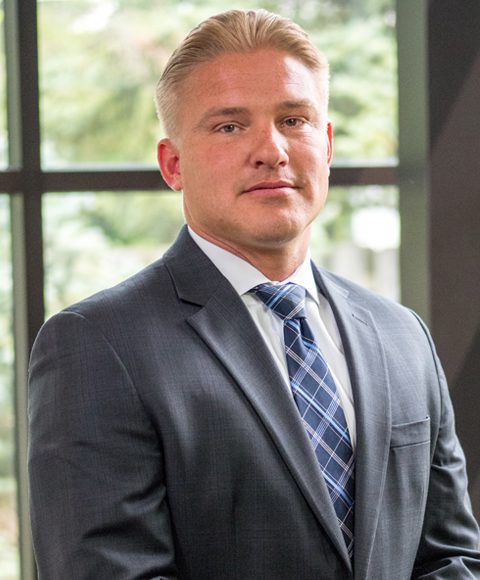Long controversial, the military vaccine mandate has been killed off by the just-enacted 2023 National Defense Authorization law. So now what? Can fired services members rejoin? To get some answers, Federal Drive with Tom Temin spoke with Anthony Kuhn, managing partner at the law firm Tully Rinckey.
Anthony Kuhn
So the law, once enacted, gave the military branches 30 days to strike down their vaccine mandate policies for the time being, what those military branches have done is essentially just froze those individuals where they are. So if they were being processed for separation, they are discontinuing the processing. And for anybody who has a pending religious or medical accommodation, most of those individuals, they will just discontinue the processing of those accommodation requests and just keep those individuals in the military. But the question now becomes what are they going to do with all the individuals who have been separated, or who have gotten out of the military? And the answer is, well, it depends on how they got out or the reason for the separation.
Tom Temin
Before we get there. I just want to ask people that are in process now that are still in the service, basically, then they the applications for exceptions that they were mostly turning down, the deciders can really put those in the shredder. correct?
Anthony Kuhn
That’s correct. So we have quite a few individuals who were had exemption requests pending. And you’re, you’re right on most of them were turned down. In fact, nearly all of them just received a blanket letter and their exemption requests weren’t even considered. They would get a blanket denial, everybody got the same form. And they have been kind of dragging on. So now that this policy is stricken, those individuals will no longer have to pursue those exemption requests.
Tom Temin
And for those that were denied earlier, and now are out of the military, was there a period of time between the denial you can almost imagine someone sitting there stamping denied, next sheet denied, next sheet denied, next week with a big huge stamp. Did those people have a few days to get ready to leave or were they summarily out the day the rubber hit the stamp?
Anthony Kuhn
Well, unfortunately, that’s that’s pretty much how it work, do they just process them and like I said, sent the same letter to just about everybody. So those individuals had some time, there are steps that the military branch is required to put them through before separating them. So not all of them have been separated. We believe the number is somewhere around 8,400 service members have been separated from the COVID vaccine, the individuals who refuse to get the vaccine. But what you don’t see there, what’s not being reported by the military branch, any of the military branches actually is the actual number. So you see the number of individuals who were separated and attributed directly to a refusal to get the vaccine. But what you don’t see is there’s probably four or five to one of every one of those individuals. It’s people who retired when they didn’t plan on retiring. Its people who were no longer allowed to reenlist. It’s people who refuse to reenlist because they refuse to get the vaccine. So while the number that’s being published is 8,400, I think the number is probably more around 30,000 have been separated or forced to get out because they refuse to get the vaccine. And that’s based on my experience, both as an attorney and a service member.
Tom Temin
So those people had an exit ramp, other than just kicked out. Here’s your duffle bag, there’s the gate, they, as you say retired or just didn’t reenlist.
Anthony Kuhn
Right. And in many of those situations, it’s individuals with 15 or more years combat veterans, people who spent a large portion of your life working towards a pension and towards retirement, they’ve been forced to get out and were no longer able to pursue that retirement. So we’re hoping now that those individuals, especially the ones who didn’t get punished for not getting the vaccine, we’re hoping that those individuals will have the easiest path back down.
Tom Temin
Right, in other words, stay where you are, don’t head to the gate, you’re still in.
Anthony Kuhn
Right. And there’s a lot of people in that situation.
Tom Temin
And before we get to the ones that are out. If you were forced out, say among that 8,400 that we know are simply kicked out, does that then not entitle them to Veterans Affairs benefits? Because they were would that have been less than honorable discharge?
Anthony Kuhn
No. So in order to qualify for most VA benefits, most of the Veterans Affairs benefits, you have to be considered a veteran, and all of those individuals would be considered veterans, and you have to have some type of honorable discharge. And there’s a couple types. So there’s the full honorable discharge that we all know that’s that’s the best discharge. That’s where you’re going to get all of your veterans benefits. There is also what’s called a general discharge, which is under honorable conditions, and I believe more than 80% of the people who were forced out received the general discharge. Individuals with a general discharge can collect service, connected compensation that monthly payment for injuries sustained while in the military, but they are not eligible for things like educational benefits, the GI Bill, things of that nature. So I expect that there will be a policy to correct what happened with those individuals in the future, I hope that the government does the right thing and upgrades the discharges for those individuals, certainly they can file with the Board for Correction of Military Records for a discharge upgrade as well. And I think that it would be granted, I expect a policy in the future that will fix those issues.
Tom Temin
We are speaking with Tony Kuhn. He’s managing partner at the law firm Tully Rinckey. And now let’s get to the issue of those that want to come back that might have been just recently thrown out, if you will, that could reenlist, or is there a mechanism for them to just return to duty as if nothing happened?
Anthony Kuhn
There isn’t yet. Again, I hope the government does the right thing and creates some type of fast track to get those individuals back into the military. But typically how an individual in that situation is handled as they will be treated like prior service, they will go and speak to a recruiter, the recruiter will look into their background, and depending on the discharge classification, so did they get an honorable, a general or an other than honorable depending on that classification, and what’s called an RE code, which is listed on their DD 214, that RE code will determine whether an individual can go back into the military without having to jump through any hurdles. And it could be a one, two, three, or four. One’s and two’s will get in pretty easily, they probably will also have an honorable discharge, individuals with the four aren’t going to be able to get back into the military without first going to a board to correct that number.
So anybody who was separated, there’ll be treated like prior service, they’ll have to clear through MEPS, most likely, I believe there’s a two year window on that. So if they get back in quickly enough, they may not have to go through the full Military Entrance Processing Station processing again, which is where they they do a full physical evaluation of the individual. Now obviously, many people who are combat veterans and who have put, you know, maybe 10-15 years of their life into the military have some injuries, that comes with the territory. So those individuals will have to clear medically if they don’t come back in quickly enough. So my recommendation to those individuals, is if you are considering getting back in and working towards your pension, especially if you’re someone who has 10 or 15 years and do it soon, and the quicker you get in, the easier it will be for you.
Tom Temin
And just to be clear the law, the National Defense Authorization Act specified that the DoD has to suspend the policy or in that policy of vaccine mandate, but it did not order DoD to create a mechanism for the people. They’re under discharge to be able to come back easily.
Anthony Kuhn
That’s correct. What happened here is that the DoD recognized that this was the big part of destroying readiness for the military. So we hit around 40% of our recruiting numbers this year. People refuse to reenlist, people refuse to join the military. And we lost I think tens of thousands of individuals and service members around this this mandate. So recognizing that error, they have gone back and they’re trying to correct this error to rebuild the strength and readiness of our military because we’re nowhere near as ready as we should be right now. My hope is that they will create a policy to get these individuals back into the military as quickly as possible.





